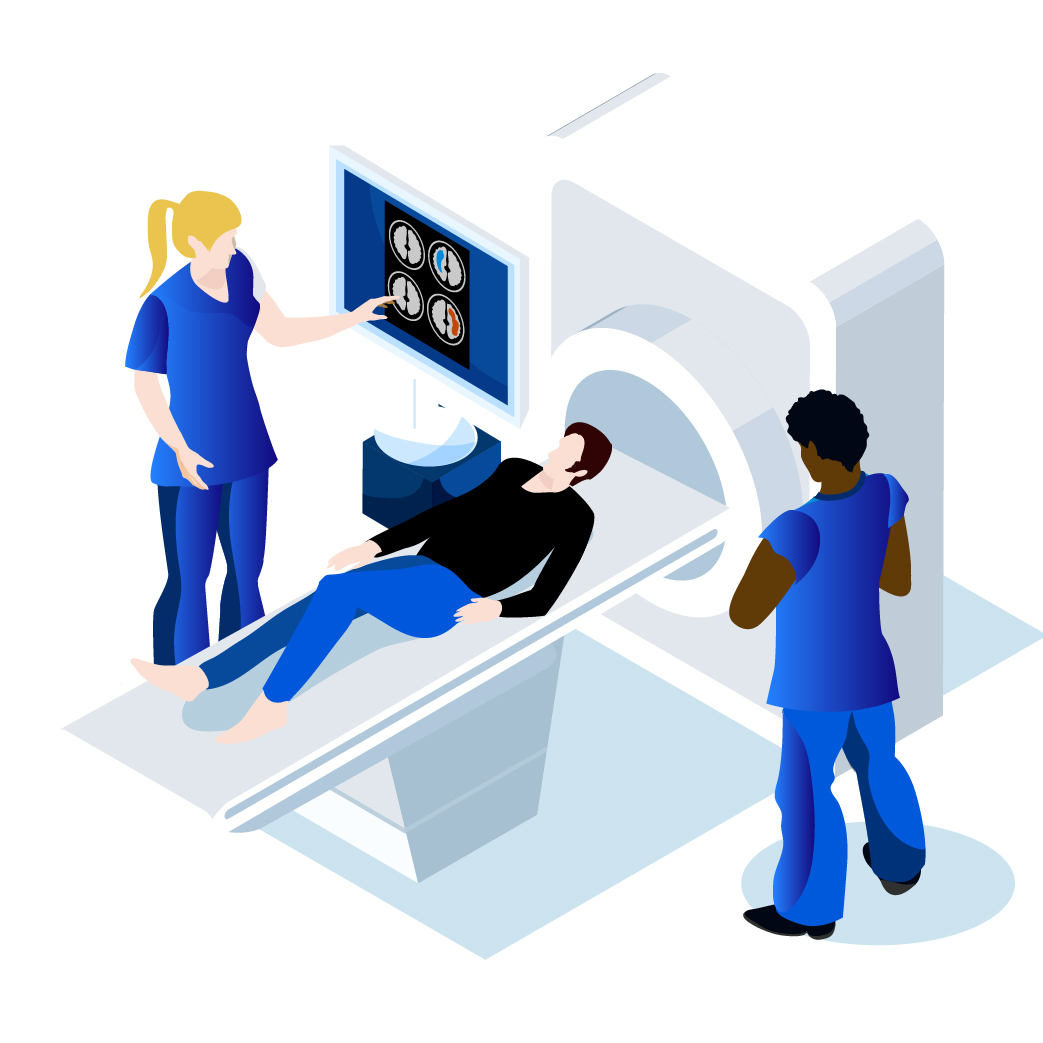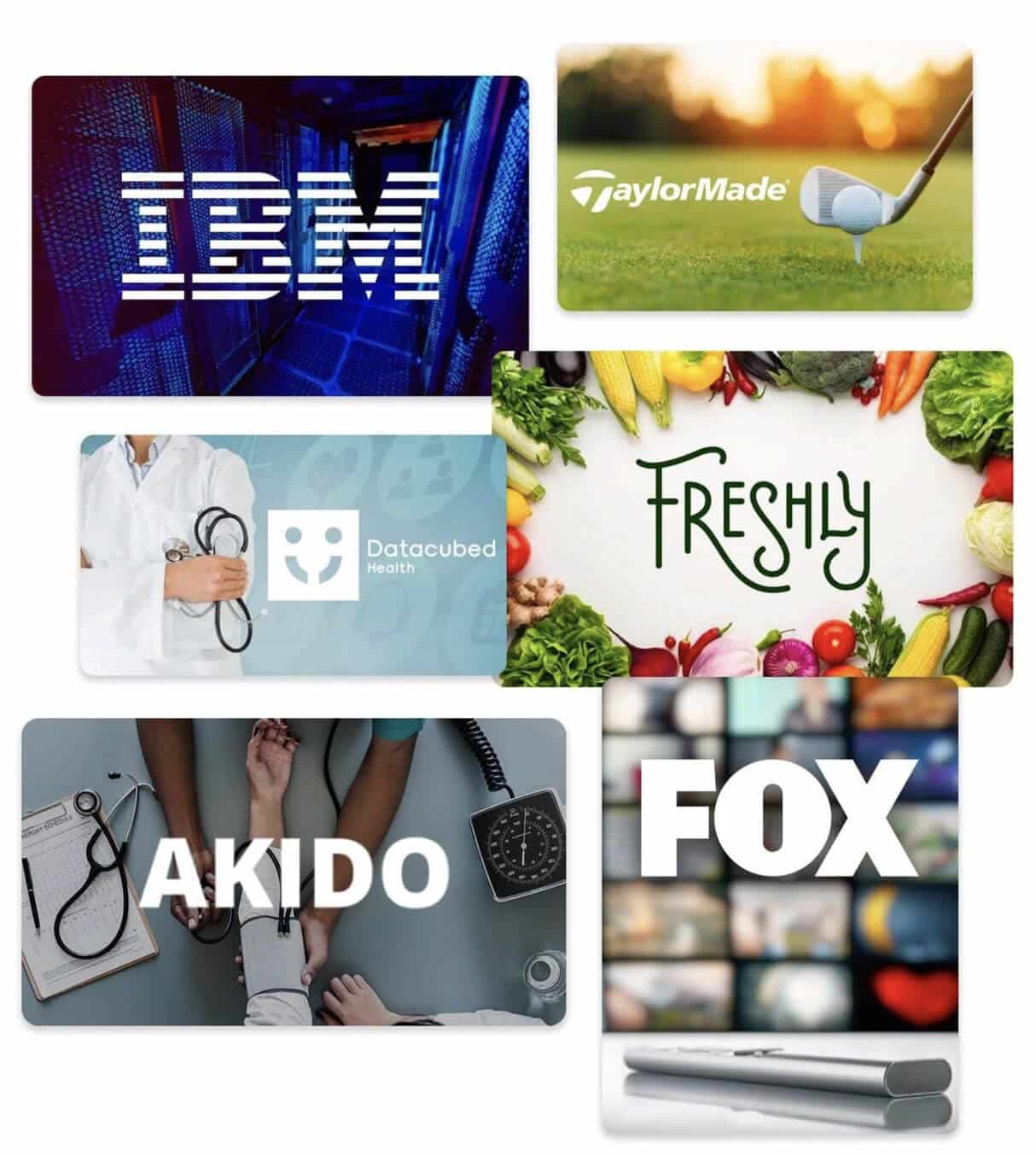Revolutionizing Healthcare: The Role of AI in the Medical Field
AI in Healthcare: Revolutionizing Medicine and Transforming Patient Care

Everything you need to know about
AI in the medical field
In recent years, the rapid advancement of Artificial Intelligence (AI) has brought transformative changes to numerous industries. However, no sector has been more profoundly impacted than healthcare. Integrating AI in the medical field can revolutionize healthcare delivery, diagnosis, treatment, and patient outcomes. From cutting-edge diagnostic tools to personalized treatment plans, AI is poised to be a game-changer in approaching medical challenges. This article explores the applications of AI in the medical field and the promises it holds for the future of healthcare.
AI in Medical Imaging
Medical imaging has been one of the primary areas where AI has made significant strides. With remarkable speed and accuracy, AI-powered algorithms can analyze vast amounts of medical images, such as X-rays, MRIs, and CT scans. These algorithms assist radiologists in detecting abnormalities and diagnosing diseases early, thereby increasing the chances of successful treatment.
For instance, AI-driven customized software can identify early signs of diseases like cancer or neurological disorders, even before symptoms manifest. This proactive approach enables healthcare professionals to intervene promptly, potentially saving lives and reducing healthcare costs.
Our Executive Team

Common Industries we provide AI in the medical field:
Healthcare & Life Sciences
SaaS & Information Services
Manufacturing
Financial Services & FinTech
Retail & E-Commerce
Insurance
Logistics & Automotive
Travel & Hospitality
AI in Diagnosis and
Decision Support
Beyond medical imaging, AI is also used to aid in diagnosis and decision-making across various medical specialties. Machine learning algorithms can analyze patient data, including medical histories, genetic profiles, and symptoms, to support physicians in arriving at more accurate and efficient diagnoses.
These decision support systems can provide clinicians with relevant research papers, treatment guidelines, and case studies, helping them make well-informed decisions about patient care. AI can also predict patient outcomes based on historical data, assisting in developing personalized treatment plans tailored to each individual’s unique needs.
AI-Driven Drug Discovery
The traditional drug discovery process is often time-consuming, expensive, and subject to a high failure rate. AI has emerged as a valuable tool in pharmaceutical research, significantly expediting the drug discovery process. Machine learning algorithms can analyze vast databases of chemical compounds and predict potential drug candidates with a higher likelihood of success.
AI can identify promising drug targets and predict their safety and efficacy by simulating the interactions between molecules and biological systems. This approach can revolutionize drug development, leading to faster approvals of novel therapeutics and improved patient treatment options.


Common Industries we provide AI in the medical field:

COST-EFFECTIVE DEVELOPERS
Our Software Developers and Engineers cost
on average $45 to $65 per hour

HIGHEST QUALITY DEDICATED TEAMS
Access to the TOP 1% of Nearshore Software Development resources in Latin America

TIME SENSITIVE DEVELOPMENT
Sonatafy’s Nearshore Talent Acquisition can place qualified Software Engineering teams in as quick as 2 weeks
Enhancing Patient Care
and Remote Monitoring
AI-powered applications are also improving patient care and remote monitoring. Virtual health assistants, for instance, can answer patients’ questions, offer medication reminders, and provide personalized health recommendations. These AI-driven systems can help patients manage chronic conditions more effectively and promote healthier lifestyles.
Moreover, wearable devices with AI algorithms can continuously monitor vital signs and other health parameters. This real-time data transmission allows healthcare professionals to monitor patients remotely and detect any concerning changes promptly. Early intervention can minimize potential complications, reducing hospital readmissions and healthcare costs.
Challenges and Ethical Considerations
While integrating AI into the medical field holds great promise, it raises significant challenges and ethical considerations. The primary concern revolves around data privacy and security. AI systems require access to vast amounts of patient data to function effectively, leading to concerns about the unauthorized use or potential breaches of sensitive medical information. Striking the right balance between data accessibility for AI research and patient privacy is crucial.
Additionally, the black-box nature of some AI algorithms poses challenges in understanding how they arrive at specific diagnoses or treatment recommendations. This lack of transparency can raise skepticism among medical professionals and patients, hindering the adoption of AI-driven solutions (1).
“At the end of the day, it’s hard to predict what are the potential consequences and have the appropriate safeguards … many things are really inappropriately inequitable for certain sub-populations … there’s so much data that’s been hard to contain. I would implore all of you to keep this in mind.”
-MIT

Interested In Working With Sonatafy?
Furthermore, the potential for bias
in AI algorithms is another pressing issue.
AI systems learn from historical data, and if that data contains preferences, the algorithms can perpetuate and amplify these biases in medical decision-making. Ensuring fairness and equity in AI healthcare applications must be a priority to prevent the exacerbation of existing health disparities.
Regulatory and Legal Implications
As AI technologies evolve, the healthcare industry faces regulatory and legal challenges. Determining liability in cases of AI-related errors or malfunctions can be complex. Establishing clear guidelines and regulations that govern the use of AI in healthcare is essential to protect patients and healthcare providers.
Moreover, the validation and approval processes for AI-driven medical devices and software must be robust. Rigorous testing and verification are essential to ensure that AI algorithms are safe, reliable, and effective before they are deployed in real-world clinical settings.
Artificial Intelligence in the medical field can potentially revolutionize healthcare as we know it. From improving diagnostic accuracy and treatment outcomes to enabling personalized Medicine and remote monitoring, AI offers many benefits to patients and healthcare providers. Nevertheless, addressing the ethical, legal, and regulatory challenges that come hand-in-hand with these transformative technologies is vital.
Collaboration between AI experts, healthcare professionals, policymakers, and ethicists will be crucial in developing responsible AI solutions prioritizing patient safety, privacy, and equity. As AI in healthcare continues to evolve, the future of Medicine holds great promise for better health outcomes and improved patient care.
How AI is Changing the Medical Industry
Integrating Artificial Intelligence (AI) into the medical field has brought about transformative changes, revolutionizing how healthcare is delivered and experienced. AI’s potential to process vast amounts of data, learn from patterns, and make intelligent predictions has opened up new horizons in medical research, diagnosis, treatment, and patient care. Let’s delve into some specific ways AI is changing the medical industry (2).
“AI is transforming the practice of medicine. It’s helping doctors diagnose patients more accurately, make predictions about patients’ future health, and recommend better treatments.”
-Coursera
%
TOP NEARSHORE TALENT
%
ATTRITION RATE
%
ENGLISH PROFICIENCY
RESOURCES DEPLOYED
Speeding up Diagnosis
and Treatment
One of the most significant impacts of AI in the medical field is its ability to expedite the diagnosis process. Traditional diagnostic methods can be time-consuming, but AI algorithms can analyze medical images and patient data with incredible speed and precision. For instance, AI-powered software can quickly detect signs of diabetic retinopathy in eye images or identify potential indicators of cardiovascular diseases in ECG data. By providing rapid and accurate diagnoses, AI enables healthcare professionals to intervene early and start appropriate treatments promptly, potentially saving lives and improving patient outcomes.
Personalized Medicine
AI’s data analysis capabilities allow for personalized Medicine, tailoring treatments to individual patients based on their genetic makeup, medical history, and lifestyle factors. AI algorithms can sift through vast datasets and identify patterns influencing a patient’s response to specific treatments or medications. This enables healthcare providers to develop personalized treatment plans, optimizing therapeutic outcomes and minimizing adverse effects.
In cancer treatment, AI-powered precision medicine can analyze a patient’s tumor genetics to identify specific mutations and match them with targeted therapies, enhancing the effectiveness of treatment and reducing unnecessary side effects.
Drug Discovery and Development
Traditional drug discovery is a lengthy and costly process, often taking years to bring a new medication to market. AI has emerged as a game-changer in this area, significantly speeding up drug discovery and development.
AI-driven algorithms can analyze chemical properties, molecular structures, and historical drug data to predict potential drug candidates. By identifying promising compounds faster, AI expedites the process of drug screening and allows pharmaceutical companies to focus their resources on the most viable options. This accelerated drug discovery process promises to deliver innovative therapies to patients more swiftly and cost-effectively.
Virtual Health Assistants and Chatbots
AI-powered virtual health assistants and chatbots are transforming patient care and engagement. These virtual agents can interact with patients, answer medical queries, provide information about medications and treatment plans, and offer support for managing chronic conditions.
Virtual health assistants can monitor patients’ health status remotely and alert healthcare providers in case of concerning changes. This proactive approach to patient care can lead to early interventions, reduced hospital admissions, and improved patient adherence to treatment plans.
Enhancing Medical Research
AI is revolutionizing medical research by facilitating the analysis of vast amounts of biomedical data, accelerating the pace of discoveries, and uncovering novel insights. AI algorithms can comb scientific literature, clinical trial data, and genetic databases to identify potential research areas and hypotheses.
AI-driven predictive models can aid clinical trial design, helping researchers identify suitable trial candidates, predict treatment responses, and determine optimal dosages. By optimizing the research process, AI has the potential to hasten the development of new treatments and interventions, benefiting patients worldwide (3).
“Curious about how A.I. would perform on tough medical cases, Dr. Rodman gave the notoriously challenging New England Journal of Medicine weekly case — and found that the program offered the correct diagnosis in a list of possible diagnoses just over 60 percent of the time.”
– New York Times
AI’s integration into the medical field has ushered in a new era of healthcare characterized by faster, more accurate diagnoses, personalized treatment plans, and enhanced patient care. As AI technologies evolve, their potential for positive impact in the medical industry grows exponentially. However, addressing ethical considerations, data privacy concerns and regulatory challenges will be essential to ensure that AI is harnessed responsibly and equitably.
With collaboration between AI experts, medical professionals, policymakers, and patients, the medical industry can fully leverage AI’s capabilities to drive medical advancements, improve patient outcomes, and ultimately create a healthier world. The future of Medicine is undoubtedly intertwined with the boundless possibilities offered by AI, and the journey toward its realization promises to be exciting and transformative.
Technology in Healthcare Companies
Awards & Recognitions
Helping take our clients’ software development businesses to the next level has been quite an experience, and we are not slowing down any time soon. Providing a memorable experience and far surpassing our customers’ software development and solutions goals is one of the most rewarding experiences of our company to date.
We’re ready to start helping your company grow with our industry-leading custom software development solution, are you?

Earning Trust & Loyalty for our Software Development Services
Our executive team proudly provides complete custom healthcare software development as well as, SaaS, Manufacturing, and FinTech solutions from deployment to completion.
Our client-centric software development solutions have made us the healthcare app development provider of choice for clients such as Akido Labs, Datacubed Health, Sema Technologies, and Semantic AI, among others. With thousands of software development engineers deployed to date, clients love our personalized high-touch approach.
With high-quality delivery web development services and strong customer support and management, we give you the ability to focus on business decisions rather than software development issues.
Sonatafy Technology services can dramatically
improve the AI in the medical field.
Our Software Development Clients Have Spoken.

“We increased our productivity and quality by extending our team with Sonatafy resources. They are part of our ‘family’. Their passion, dedication, experience, and wisdom has been nothing short of impressive.”

“We have been using Sonatafy for software team augmentation. Their vetting process is extremely through and has saved us a huge amount of time. All of the candidates presented have been outstanding and have fit into our team perfectly.”

“The Sonatafy team consists of members who are dedicated, personable, and attentive. They will search tirelessly to match the right talent to meet your skills and budgetary requirements. Regardless of your situation, you cannot go wrong with Sonatafy.”

“The Sonatafy team has continually impressed us with the quality of their engineers — we have found excellent engineering leaders in their contractors who have helped tremendously. They really are an integral part of our team, and we’re very thankful for Sonatafy’s professional leadership in this space. I heartily recommend them to augment anyone’s teams or projects.”

“At IMAIGE Analytics, we are driven by purpose and outcomes. Sonatafy has been the exact type of partner we need to help us deliver on both. They’ve found solutions specific to our purpose and needs, their resources have contributed like long time team members from day one and they seem dedicated to progressively better outcomes from the start. Thanks to the team and to Steve for taking the time to make our business better!”

“The entire team at Sonatafy greatly surpassed our expectations. We require very specific skill sets and the team did an incredible job of screening and selecting top – notch candidates. Sonatafy’s attention to detail, professionalism, open communication, and collaboration with us ensured that we found highly skilled talent that fit seamlessly into our company’s culture. I can’t recommend them strongly enough.”

“Sonatafy makes it easy to find great and professional talent, with their help we have been able to solidify our team. Their process and communication is a refresher and a weight off our shoulders.”

I’ve used Sonatafy Technologies for the last 5 + years at several of my companies both small and large, in a staff augmentation capacity. I have been consistently impressed with the high – quality of technical skills as well as the team member’s high level of engagement and dedication to my projects. I’ve always considered my dedicated Sonatafy resources as members of my team , and their contributions and performance has been excellent. The combination of high performance and afford ability has been an outstanding benefit , and I would highly recommend using Sonatafy Technologies as your near shore technology partner.
The uses and applications
in Healthcare Technology:
Artificial Intelligence (AI) in Medicine refers to using advanced algorithms and machine learning techniques to process and analyze vast amounts of medical data and assist healthcare professionals in making more informed decisions. AI systems can learn from historical data, recognize patterns, and generate insights to improve disease detection, diagnosis, treatment planning, and patient care.
AI Applications in Medicine
AI healthcare app development (https://sonatafy.com/healthcare-app-development-the-absolute-guide/) encompass many areas, including medical imaging analysis, disease detection and diagnosis, drug discovery, personalized treatment plans, virtual health assistants, and clinical trial optimization. AI’s versatility and data-processing capabilities make it valuable for addressing complex medical challenges and improving healthcare outcomes.
AI in Disease Detection and Diagnosis
AI’s ability to analyze large datasets and recognize patterns has transformed disease detection and diagnosis. AI algorithms can analyze medical images, such as X-rays, MRIs, and CT scans, with remarkable accuracy, aiding in the early detection of diseases like cancer, cardiovascular conditions, and neurological disorders. AI-powered diagnostic tools assist healthcare professionals in making quicker and more precise diagnoses, leading to timely treatment and improved patient outcomes.
Personalized Disease Treatment
AI plays a pivotal role in personalized Medicine by analyzing individual patient data, including genetic profiles, medical history, and lifestyle factors. Machine learning algorithms can identify patient-specific treatment options based on these data points, leading to personalized disease treatment plans tailored to each patient’s needs. This approach enhances treatment efficacy and minimizes adverse effects.
AI in Medical Imaging
AI-powered medical imaging has transformed how radiologists and other medical professionals interpret diagnostic images. AI algorithms can quickly analyze medical images, detect anomalies, and prioritize cases requiring urgent attention. By enhancing the accuracy and speed of medical imaging analysis, AI helps healthcare providers make better-informed decisions, leading to more effective patient care.
Clinical Trial Efficiency
AI has the potential to optimize and streamline clinical trials. AI algorithms can identify suitable candidates for clinical trials, predict treatment responses, and even simulate trial outcomes. By improving patient recruitment and trial design, AI contributes to more efficient and cost-effective clinical research, accelerating the development of new treatments and therapies.
Accelerated Drug Development
AI-driven drug discovery has revolutionized the pharmaceutical industry. AI algorithms can analyze chemical structures and historical drug data to predict potential drug candidates, drastically reducing the time and resources required for drug development. By accelerating drug discovery, AI opens up new possibilities for innovative therapies and treatments.
Benefits of AI in Medicine
The benefits of AI in Medicine are manifold. AI-driven healthcare applications lead to informed patient care, reduced errors, cost savings, increased doctor-patient engagement, and contextual relevance. By leveraging AI’s data analysis capabilities, healthcare providers can deliver more efficient, personalized, and accurate medical care.
Informed Patient Care
AI provides healthcare professionals valuable insights and evidence-based recommendations to support clinical decision-making. By integrating AI-driven data analysis into patient care, medical professionals can develop personalized treatment plans and improve patient outcomes.
Error Reduction
AI applications in Medicine can significantly reduce diagnostic errors and treatment mistakes. AI algorithms are designed to process vast amounts of data, cross-reference medical literature, and identify potential inconsistencies in patient data, helping to mitigate errors and enhance the accuracy of medical interventions.
Reducing the Costs of Care
AI’s ability to optimize clinical processes, improve treatment efficacy, and reduce medical errors can save healthcare delivery costs. By streamlining administrative tasks and enhancing resource allocation, AI contributes to more cost-efficient healthcare services.
Increasing Doctor-Patient Engagement
AI-driven virtual health assistants and chatbots improve doctor-patient engagement by providing patients with real-time health information, personalized recommendations, and ongoing support. These virtual assistants can answer medical queries, offer medication reminders, and monitor patients remotely, leading to more engaged and empowered patients.
Providing Contextual Relevance
AI applications in Medicine can analyze patient data in the context of broader medical knowledge, clinical guidelines, and research findings. This contextual relevance ensures that treatment decisions are evidence-based and aligned with the latest medical advancements, ultimately benefiting patient care.
What is Artificial Intelligence in Healthcare?
Artificial Intelligence in healthcare refers to integrating AI technologies and machine learning algorithms into various aspects of medical practice, research, and administration. AI’s data analysis and predictive capabilities are harnessed to enhance disease detection, diagnosis, treatment planning, drug discovery, and patient care, leading to improved healthcare outcomes and advancements in medical research. As AI continues to evolve, its potential for revolutionizing healthcare and driving medical innovation is increasingly evident.
How is AI being used in the medical field?
AI is used in the medical field to improve patient care, diagnosis, treatment, and overall healthcare outcomes. Some of the prominent applications of AI in healthcare include:
- Medical Imaging: AI algorithms are used to analyze medical images such as X-rays, MRIs, and CT scans, assisting in the early detection of diseases like cancer and neurological disorders.
- Disease Detection and Diagnosis: AI-powered systems can process patient data to aid in the timely and accurate diagnosis of various medical conditions, enabling healthcare professionals to make informed decisions.
- Personalized Treatment Plans: AI analyzes individual patient data, including genetic profiles and medical history, to develop personalized treatment plans that cater to each patient’s unique needs.
- Drug Discovery and Development: AI accelerates drug discovery by analyzing vast datasets, predicting potential drug candidates, and optimizing development.
- Virtual Health Assistants: AI-driven virtual assistants and chatbots engage with patients, answer medical queries, and support managing chronic conditions.
- Clinical Trial Optimization: AI can optimize clinical trials by identifying suitable candidates, predicting treatment responses, and simulating trial outcomes.
- Remote Patient Monitoring: AI-powered wearables and monitoring devices allow for continuous tracking of patients’ health parameters, enabling remote patient monitoring and early intervention.
Is AI the future of Medicine?
Yes, AI is widely regarded as the future of Medicine. Integrating AI technologies in healthcare has already shown immense potential to transform the industry positively. With ongoing advancements and research, AI is expected to play an increasingly crucial role in improving medical examination, diagnosis, treatment, and patient care. Its ability to process vast amounts of data, identify patterns, and make informed predictions will lead to more personalized and precise medical interventions, ultimately enhancing patient outcomes and revolutionizing the healthcare landscape (4).
“…these programs will actually be able to look at all our data under the right privacy provisions and actually come up with new biomedical insights, new potential treatments, groups of patients who could benefit from these treatments and actually accelerate the drug discovery process as well.”
-PBS
What is AI in healthcare terms?
In healthcare terms, AI refers to applying Artificial Intelligence technologies in medical practice, research, and administration. AI utilizes advanced algorithms and machine learning techniques to analyze medical data, identify patterns, and generate valuable insights to aid healthcare professionals in making better-informed decisions. AI’s primary goal in healthcare is to improve patient care, enhance disease detection and diagnosis, streamline medical research, and optimize clinical processes for more efficient and effective healthcare delivery.
Can AI take over the medical field?
While AI is revolutionizing the medical field and bringing significant advancements, it will likely take over partially. AI is best viewed as a powerful tool to augment medical expertise rather than replace it. Healthcare providers and medical professionals remain essential for providing clinical judgment, empathy, and the human touch in patient care.
AI excels in tasks that involve data analysis, pattern recognition, and predictive modeling, but it needs the emotional Intelligence and context-based understanding that human healthcare providers possess. The ideal scenario involves a synergistic approach where AI enhances medical decision-making, optimizes processes, and supports medical professionals, leading to more efficient and personalized patient care. The responsible integration of AI into the medical field will ensure that it complements human expertise while maintaining patient safety, privacy, and ethical considerations.
References:
- At the end of the day, it’s hard to predict what are the potential consequences and have the appropriate safeguards … many things are really inappropriately inequitable for certain sub-populations … there’s so much data that’s been hard to contain. I would implore all of you to keep this in mind. – MIT Quote
https://news.mit.edu/2023/is-medicine-ready-for-ai-0517 - AI is transforming the practice of medicine. It’s helping doctors diagnose patients more accurately, make predictions about patients’ future health, and recommend better treatments. – Coursera Quote
https://www.coursera.org/specializations/ai-for-medicine - Curious about how A.I. would perform on tough medical cases, Dr. Rodman gave the notoriously challenging New England Journal of Medicine weekly case — and found that the program offered the correct diagnosis in a list of possible diagnoses just over 60 percent of the time. – New York Times Quote
https://www.nytimes.com/2023/07/06/opinion/artificial-intelligence-medicine-healthcare.html - …these programs will actually be able to look at all our data under the right privacy provisions and actually come up with new biomedical insights, new potential treatments, groups of patients who could benefit from these treatments and actually accelerate the drug discovery process as well– PBS Quote
https://www.pbs.org/newshour/show/the-promises-and-potential-pitfalls-of-artificial-intelligence-in-medicine









